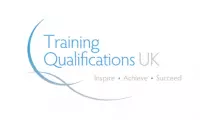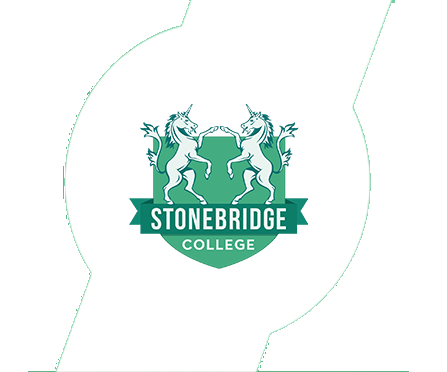Level 3 Diploma in Supporting Teaching and Learning (RQF).

Level 3 Diploma in Supporting Teaching and Learning (RQF)

This Course at a Glance
- RQF accredited
- No experience needed
- Become a Teaching Assistant
- Or progress to a Level 3 TA position
- Gain practical experience in a work placement
- Support children with special educational needs
About your Diploma
If you’re interested in a career working with children and young people but aren’t sure where to start, becoming a Teaching Assistant is an ideal opportunity. Not only is it an important role within itself, becoming a Teaching Assistant can be the perfect stepping stone to a career as a Teacher.
By studying our Level 3 Diploma in Supporting Teaching and Learning (RQF), you can enter the Teaching Assistant profession at Level 3 and provide specialist support to children with varying abilities.
If you’re an existing Teaching Assistant at Level 1 or 2, this course will allow you to take on more responsibilities and further your career.
It does so by teaching you an array of subjects specific to more advanced support through a blend of online study and practical learning. This combination will give you the skills to support children and young people in a classroom, without going to university.
You will study everything from how to support positive behaviour to the policy and procedures for the use of ICT for teaching and learning.
Other modules will focus on enhancing your ability to support children and young people’s speech, language and communication, including bilingual learners. You will also learn how to support the learning of children and young people with special educational needs and disabilities.
With this level of skill and understanding, you will be able to pursue more advanced positions as a Teaching Assistant in schools, colleges and specialist educational institutions.
As part of the assessment for this qualification, you will be required to undergo direct observation in a suitable environment.
Getting Started
If you want to become a Teaching Assistant, Stonebridge Associated Colleges can help. As one of the leading UK distance learning providers, our courses are designed to help people gain skills and access their ideal careers.
This Level 3 Diploma in Supporting Teaching and Learning (RQF) is nationally recognised and will help you start or progress in your career as a Teaching Assistant.
By teaching you through online study and workplace learning, you’ll have the desirable skills and experience employers are searching for.
You can also study the online materials at your pace, so you can move through the course quickly.
You will need to complete between 50 – 200 hours in placement. These hours will need to be spread throughout the duration of the course until the course completion.
- Access your course materials immediately
- Tutor support via our market-leading platform
- Study around existing commitments
- Progress as quickly as you’d like
- Tailored individual learning plan to help you succeed
- Engaging content; from videos to interactive quizzes
- Industry-leading 5 days marking turnaround
Qualification: Level 3 Diploma in Supporting Teaching and Learning (RQF)
Learners who successfully complete their course will receive an TQUK Ofqual accredited Level 3 Diploma in Supporting Teaching and Learning (RQF) (Qualification reference number = 603/2496/X).
There are no entry requirements, however English and Maths Level 2 or higher would be advantageous. A suitable work placement is required.
Minimum Age restriction
16
Average completion timeframe
You can cancel/pause your study at anytime. This means that if your personal circumstances change (time available to study, financial pressures etc.), you can cancel/pause your study and payments. If you decide to return to your studies at a later date, you can simply reactivate your subscription and continue from where you left off (we will save all your course progress). Using our subscription service you are not tied into a credit agreement.
Assessement requirements
Assessments will be carried out using various evaluation mediums such as, observation of practice, witness statements, reflections, case studies, placement log and written questions.
Placement or Practical required
Direct observation is part of the assessment methodology in this course. Observations may be carried out by appropriately qualified members of staff in work settings. There are specific criteria and guidelines that need to be followed, therefore learners must ensure that a suitable member of staff is able to support them by providing written observation records.
If placement or practical required, when?
From unit 3. A learner will need a mentor who is. willing to be able to complete observations of practice and witness statements to confirm occupational competency. Training on vocational observations will be provided to the mentor. The mentor will be from within the learner's placement environment, and must be suitably qualified- e.g., the class teacher.
Observation by us required
Mentor observation is required.
Certification Timeframe
You can expect to receive your certification within 12 weeks of successfully completing the qualification.
The units are broken down for your here so that you can see what your qualification will include. However, the assignments you complete have been designed so that you can complete multiple tasks together where possible and you will see a different number of assignments in your personal portfolio; you will still be completing the whole qualification.
Unit 1: Schools and colleges as organisations
On completion of this unit you will:
- Understand the structure of education from early years to postcompulsory education
- Understand how schools and colleges are organised in terms of roles and responsibilities
- Understand teamwork in schools and colleges
- Understand educational ethos, mission, aims and values
- Understand the purpose of policies and procedures in education
Unit 2: Support health and safety in a learning environment
On completion of this unit you will:
- Understand how to plan and provide environments that support children and young people’s health and safety
- Understand how to recognise and manage risks to health, safety and security in a learning environment or during off-site visits
- Understand how to support children and young people to assess and manage risk for themselves
- Understand appropriate responses to accidents, incidents, emergencies and illness in the learning environment and during off-site visits
- Understand own role in assisting in the administration of medication
Unit 3: Understand how to safeguard children and young people
On completion of this unit you will:
- Understand legislation, guidelines, policies and procedures for safeguarding children and young people
- Understand how to work in partnership with other organisations to safeguard children and young people
- Understand the need to ensure children and young people’s safety and protection in the learning environment
- Understand how to respond to evidence or concerns that a child or young person has been abused or harmed
- Understand how to work with children and young people to support their well-being
Unit 4: Develop professional relationships with children, young people and adults
On completion of this unit you will:
- Understand the principles of developing positive relationships with children, young people and adults
- Understand legislation, policies and procedures for confidentiality and sharing information, including data protection
- Be able to develop professional relationships with children and young people
- Be able to communicate with children and young people
- Be able to develop professional relationships with adults
- Be able to support children and young people in developing relationships
- Be able to support inclusion and inclusive practices in work with children and young people
Unit 5: Understand how children and young people develop
On completion of this unit you will:
- Understand the expected pattern of development for children and young people from birth to 19 years
- Understand the factors that influence children and young people’s development and how these affect practice
- Understand how to monitor children and young people’s development and interventions that should take place if this is not following the expected pattern
Unit 6: Support positive behaviour in children and young people
On completion of this unit you will:
- Understand policies and procedures for promoting children and young people’s positive behaviour in a learning environment
- Be able to promote positive behaviour
- Be able to manage behaviour that challenges in a learning environment
Unit 7: Support children and young people during learning activities
On completion of this unit you will:
- Be able to contribute to planning learning activities
- Be able to prepare for learning activities
- Be able to support learning activities
- Be able to observe and report on learner participation and progress
- Be able to contribute to the evaluation of learning activities
Unit 8: Support English and maths skills
On completion of this unit you will:
- Be able to identify learner needs for English and maths support
- Be able to provide English support to help learners access teaching and learning
- Be able to provide maths support to help learners access teaching and learning
Unit 9: Support the use of ICT in the learning environment
On completion of this unit you will:
- Understand the policy and procedures for the use of ICT for teaching and learning
- Understand how to prepare ICT resources for use in teaching and learning
- Be able to support the use of ICT for teaching and learning
Unit 10: Support assessment for learning
On completion of this unit you will:
- Understand the purpose and characteristics of assessment for learning
- Be able to use assessment strategies to promote learning
- Be able to support learners in reviewing their learning strategies and achievements
- Be able to contribute to reviewing assessment for learning
- Be able to maintain learner records
Unit 11: Engage in personal and professional development
On completion of this unit you will:
- Understand what is required for competence in own work role
- Be able to reflect on organisational practice
- Be able to evaluate own performance
- Be able to agree a personal development plan
- Be able to use learning opportunities and reflective practice to contribute to personal development
Unit 12: Support children and young people’s speech, language and communication
On completion of this unit you will:
- Understand the importance of speech, language and communication for children and young people’s overall development
- Understand the role of support staff when supporting speech, language and communication development in the learning environment
- Be able to provide support for the speech, language and communication development of children and young people in the learning environment
- Be able to contribute to maintaining a positive environment that supports speech, language and communication
Unit 13: Understand how to support bilingual learners
On completion of this unit you will:
- Understand how to contribute to the assessment of bilingual learners
- Understand how to support bilingual learners to access the curriculum
Unit 14: Understand how to support learning of children and young people with special educational needs and disabilities
On completion of this unit you will:
- Understand the principles of inclusive practice and the rights of disabled children and young people and those with special educational needs
- Understand how to obtain information about individual needs, capabilities and interests of disabled children and young people, and those with special educational needs
- Understand the special educational needs of children and young people with cognition and learning needs
- Understand the special educational needs of children and young people with emotional, behavioural and social development needs
- Understand the special educational needs of learners with sensory and/or physical needs
- Understand the kinds of strategies needed to support children and young people with special educational needs and disabilities
Unit 15: Support children and young people during transitions
On completion of this unit you will:
- Understand the range and impact of transitions that children and young people may experience
- Be able to recognise and respond to transitions in children and young people’s lives
- Be able to support children and young people to manage transitions in their lives
Unit 16: Support the role of play, leisure and extra-curricular activities for children and young people
On completion of this unit you will:
- Understand the nature and importance of play and leisure
- Understand own role in relation to the requirements of play and leisure activities
- Understand how to balance risk and challenge with the benefits of the play and leisure opportunity
After each module, there will be a question paper you need to complete and submit to your assessor for marking. Direct observation will also be part of the assessment process and your assessor will support you through this when you are ready.
This method of continual assessment ensures that your assessor can consistently monitor your progress and provide you with assistance throughout the duration of the course.
As part of the assessment for this qualification, you will be required to undergo direct observation in a suitable environment.
You should allow at least 1 - 2 hours of study to complete each question paper. The approximate amount of time required to complete the course is 310 hrs.
What's Included
- All study materials
- Study Guide
- Full Tutor and Admin support
- The course fee includes the awarding body registration and certification fee (valued at up to £96.00).
VALUE
Annual
- 100% Online
- Full Tutor Support
- No Credit Checks or Credit Agreement
Monthly
- 100% Online
- Full Tutor Support
- No Credit Checks or Credit Agreement
Free 7-Day Trial
Register for a 7-day FREE trial (your payment details will be taken at checkout but not charged). Once the trial period ends you will be charged the monthly fee unless you cancel. Cancel Anytime. No Commitment.- 100% Online
- Full Tutor Support
- No Credit Checks or Credit Agreement

This Course at a Glance
- RQF accredited
- No experience needed
- Become a Teaching Assistant
- Or progress to a Level 3 TA position
- Gain practical experience in a work placement
- Support children with special educational needs
About your Diploma
If you’re interested in a career working with children and young people but aren’t sure where to start, becoming a Teaching Assistant is an ideal opportunity. Not only is it an important role within itself, becoming a Teaching Assistant can be the perfect stepping stone to a career as a Teacher.
By studying our Level 3 Diploma in Supporting Teaching and Learning (RQF), you can enter the Teaching Assistant profession at Level 3 and provide specialist support to children with varying abilities.
If you’re an existing Teaching Assistant at Level 1 or 2, this course will allow you to take on more responsibilities and further your career.
It does so by teaching you an array of subjects specific to more advanced support through a blend of online study and practical learning. This combination will give you the skills to support children and young people in a classroom, without going to university.
You will study everything from how to support positive behaviour to the policy and procedures for the use of ICT for teaching and learning.
Other modules will focus on enhancing your ability to support children and young people’s speech, language and communication, including bilingual learners. You will also learn how to support the learning of children and young people with special educational needs and disabilities.
With this level of skill and understanding, you will be able to pursue more advanced positions as a Teaching Assistant in schools, colleges and specialist educational institutions.
As part of the assessment for this qualification, you will be required to undergo direct observation in a suitable environment.
Getting Started
If you want to become a Teaching Assistant, Stonebridge Associated Colleges can help. As one of the leading UK distance learning providers, our courses are designed to help people gain skills and access their ideal careers.
This Level 3 Diploma in Supporting Teaching and Learning (RQF) is nationally recognised and will help you start or progress in your career as a Teaching Assistant.
By teaching you through online study and workplace learning, you’ll have the desirable skills and experience employers are searching for.
You can also study the online materials at your pace, so you can move through the course quickly.
You will need to complete between 50 – 200 hours in placement. These hours will need to be spread throughout the duration of the course until the course completion.
- Access your course materials immediately
- Tutor support via our market-leading platform
- Study around existing commitments
- Progress as quickly as you’d like
- Tailored individual learning plan to help you succeed
- Engaging content; from videos to interactive quizzes
- Industry-leading 5 days marking turnaround
Qualification: NCFE CACHE Level 3 Diploma in Supporting Teaching and Learning (RQF)
On successful completion of our NCFE CACHE Level 3 Diploma in Supporting Teaching and Learning (RQF) you will receive a qualification listed on the RQF at level 3 (Qualification Reference Number: 603/2496/X). This course has also been assigned 53 credits.
Professional Membership
On completion of this course you will be eligible to join the following Professional Associations(s):
Established in 2013, Training Qualifications UK are one of the most forward-thinking and agile Awarding Organisations in the UK. They work closely with both employers and providers to ensure learners receive qualifications that have impact in the workplace as well as helping learners succeed in all walks of life.
The units are broken down for your here so that you can see what your qualification will include. However, the assignments you complete have been designed so that you can complete multiple tasks together where possible and you will see a different number of assignments in your personal portfolio; you will still be completing the whole qualification.
Unit 1: Schools and colleges as organisations
On completion of this unit you will:
- Understand the structure of education from early years to postcompulsory education
- Understand how schools and colleges are organised in terms of roles and responsibilities
- Understand teamwork in schools and colleges
- Understand educational ethos, mission, aims and values
- Understand the purpose of policies and procedures in education
Unit 2: Support health and safety in a learning environment
On completion of this unit you will:
- Understand how to plan and provide environments that support children and young people’s health and safety
- Understand how to recognise and manage risks to health, safety and security in a learning environment or during off-site visits
- Understand how to support children and young people to assess and manage risk for themselves
- Understand appropriate responses to accidents, incidents, emergencies and illness in the learning environment and during off-site visits
- Understand own role in assisting in the administration of medication
Unit 3: Understand how to safeguard children and young people
On completion of this unit you will:
- Understand legislation, guidelines, policies and procedures for safeguarding children and young people
- Understand how to work in partnership with other organisations to safeguard children and young people
- Understand the need to ensure children and young people’s safety and protection in the learning environment
- Understand how to respond to evidence or concerns that a child or young person has been abused or harmed
- Understand how to work with children and young people to support their well-being
Unit 4: Develop professional relationships with children, young people and adults
On completion of this unit you will:
- Understand the principles of developing positive relationships with children, young people and adults
- Understand legislation, policies and procedures for confidentiality and sharing information, including data protection
- Be able to develop professional relationships with children and young people
- Be able to communicate with children and young people
- Be able to develop professional relationships with adults
- Be able to support children and young people in developing relationships
- Be able to support inclusion and inclusive practices in work with children and young people
Unit 5: Understand how children and young people develop
On completion of this unit you will:
- Understand the expected pattern of development for children and young people from birth to 19 years
- Understand the factors that influence children and young people’s development and how these affect practice
- Understand how to monitor children and young people’s development and interventions that should take place if this is not following the expected pattern
Unit 6: Support positive behaviour in children and young people
On completion of this unit you will:
- Understand policies and procedures for promoting children and young people’s positive behaviour in a learning environment
- Be able to promote positive behaviour
- Be able to manage behaviour that challenges in a learning environment
Unit 7: Support children and young people during learning activities
On completion of this unit you will:
- Be able to contribute to planning learning activities
- Be able to prepare for learning activities
- Be able to support learning activities
- Be able to observe and report on learner participation and progress
- Be able to contribute to the evaluation of learning activities
Unit 8: Support English and maths skills
On completion of this unit you will:
- Be able to identify learner needs for English and maths support
- Be able to provide English support to help learners access teaching and learning
- Be able to provide maths support to help learners access teaching and learning
Unit 9: Support the use of ICT in the learning environment
On completion of this unit you will:
- Understand the policy and procedures for the use of ICT for teaching and learning
- Understand how to prepare ICT resources for use in teaching and learning
- Be able to support the use of ICT for teaching and learning
Unit 10: Support assessment for learning
On completion of this unit you will:
- Understand the purpose and characteristics of assessment for learning
- Be able to use assessment strategies to promote learning
- Be able to support learners in reviewing their learning strategies and achievements
- Be able to contribute to reviewing assessment for learning
- Be able to maintain learner records
Unit 11: Engage in personal and professional development
On completion of this unit you will:
- Understand what is required for competence in own work role
- Be able to reflect on organisational practice
- Be able to evaluate own performance
- Be able to agree a personal development plan
- Be able to use learning opportunities and reflective practice to contribute to personal development
Unit 12: Support children and young people’s speech, language and communication
On completion of this unit you will:
- Understand the importance of speech, language and communication for children and young people’s overall development
- Understand the role of support staff when supporting speech, language and communication development in the learning environment
- Be able to provide support for the speech, language and communication development of children and young people in the learning environment
- Be able to contribute to maintaining a positive environment that supports speech, language and communication
Unit 13: Understand how to support bilingual learners
On completion of this unit you will:
- Understand how to contribute to the assessment of bilingual learners
- Understand how to support bilingual learners to access the curriculum
Unit 14: Understand how to support learning of children and young people with special educational needs and disabilities
On completion of this unit you will:
- Understand the principles of inclusive practice and the rights of disabled children and young people and those with special educational needs
- Understand how to obtain information about individual needs, capabilities and interests of disabled children and young people, and those with special educational needs
- Understand the special educational needs of children and young people with cognition and learning needs
- Understand the special educational needs of children and young people with emotional, behavioural and social development needs
- Understand the special educational needs of learners with sensory and/or physical needs
- Understand the kinds of strategies needed to support children and young people with special educational needs and disabilities
Unit 15: Support children and young people during transitions
On completion of this unit you will:
- Understand the range and impact of transitions that children and young people may experience
- Be able to recognise and respond to transitions in children and young people’s lives
- Be able to support children and young people to manage transitions in their lives
Unit 16: Support the role of play, leisure and extra-curricular activities for children and young people
On completion of this unit you will:
- Understand the nature and importance of play and leisure
- Understand own role in relation to the requirements of play and leisure activities
- Understand how to balance risk and challenge with the benefits of the play and leisure opportunity
After each module, there will be a question paper you need to complete and submit to your assessor for marking. Direct observation will also be part of the assessment process and your assessor will support you through this when you are ready.
This method of continual assessment ensures that your assessor can consistently monitor your progress and provide you with assistance throughout the duration of the course.
As part of the assessment for this qualification, you will be required to undergo direct observation in a suitable environment.
You should allow at least 1 - 2 hours of study to complete each question paper. The approximate amount of time required to complete the course is 310 hrs.
What's Included
- All study materials
- Study Guide
- Full Tutor and Admin support
- The course fee includes the awarding body registration and certification fee (valued at up to £96.00).
Our Advisors.
Our team of course advisors are keen to help.
Call us now on 0121 392 8288
Alternatively, please complete the form below and we’ll get back to you as soon as possible.
Our student support team is here for you.











